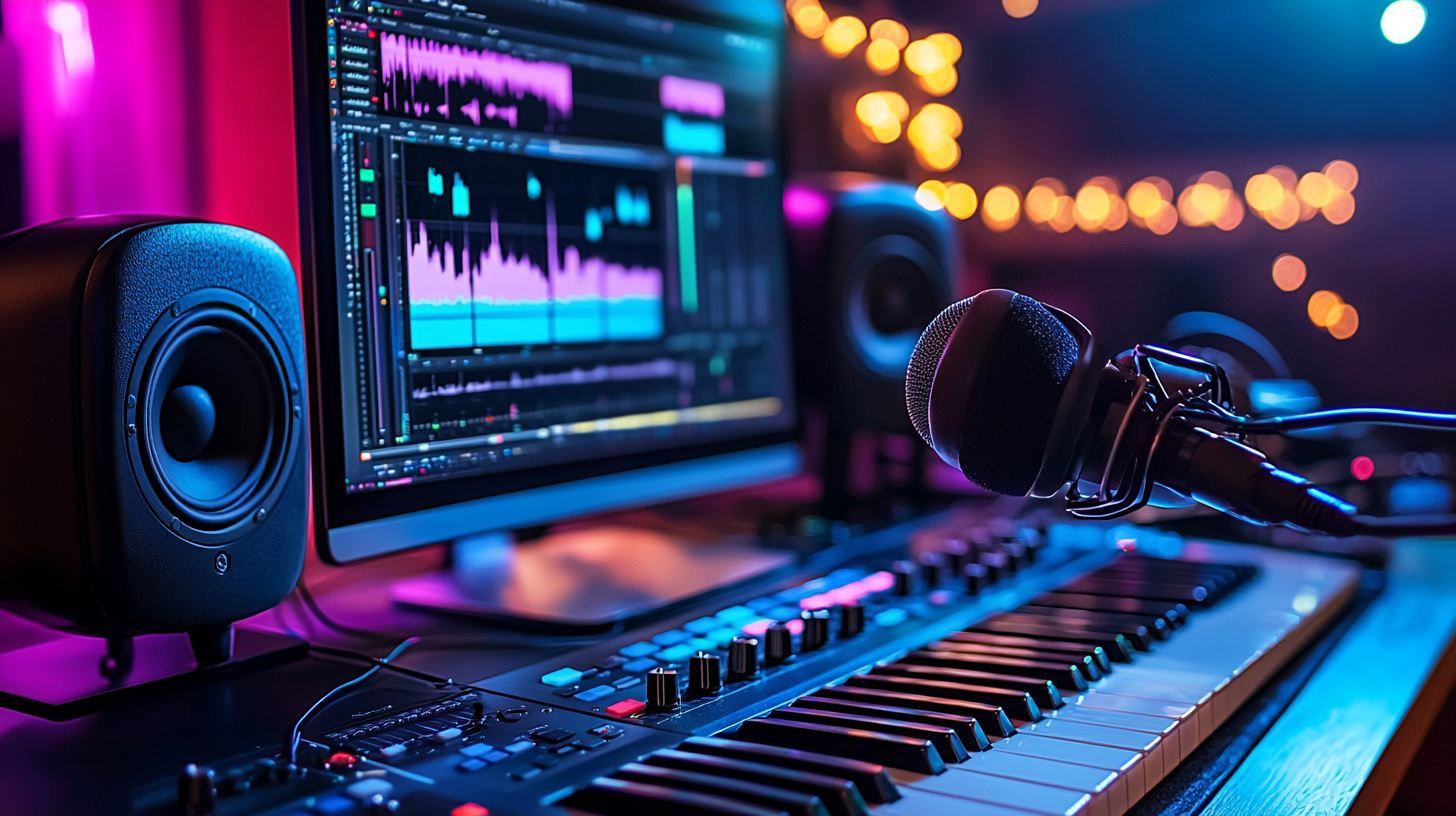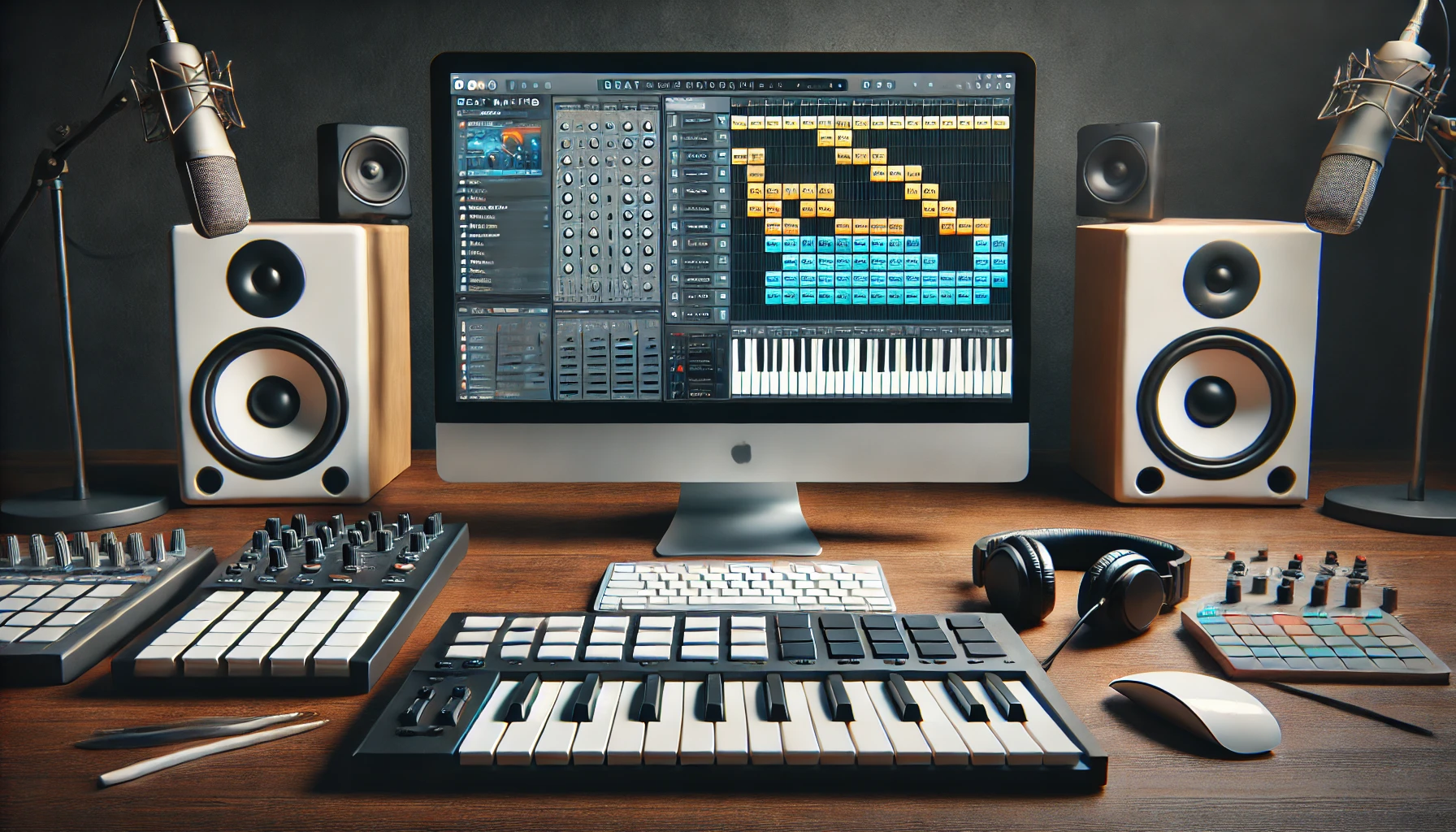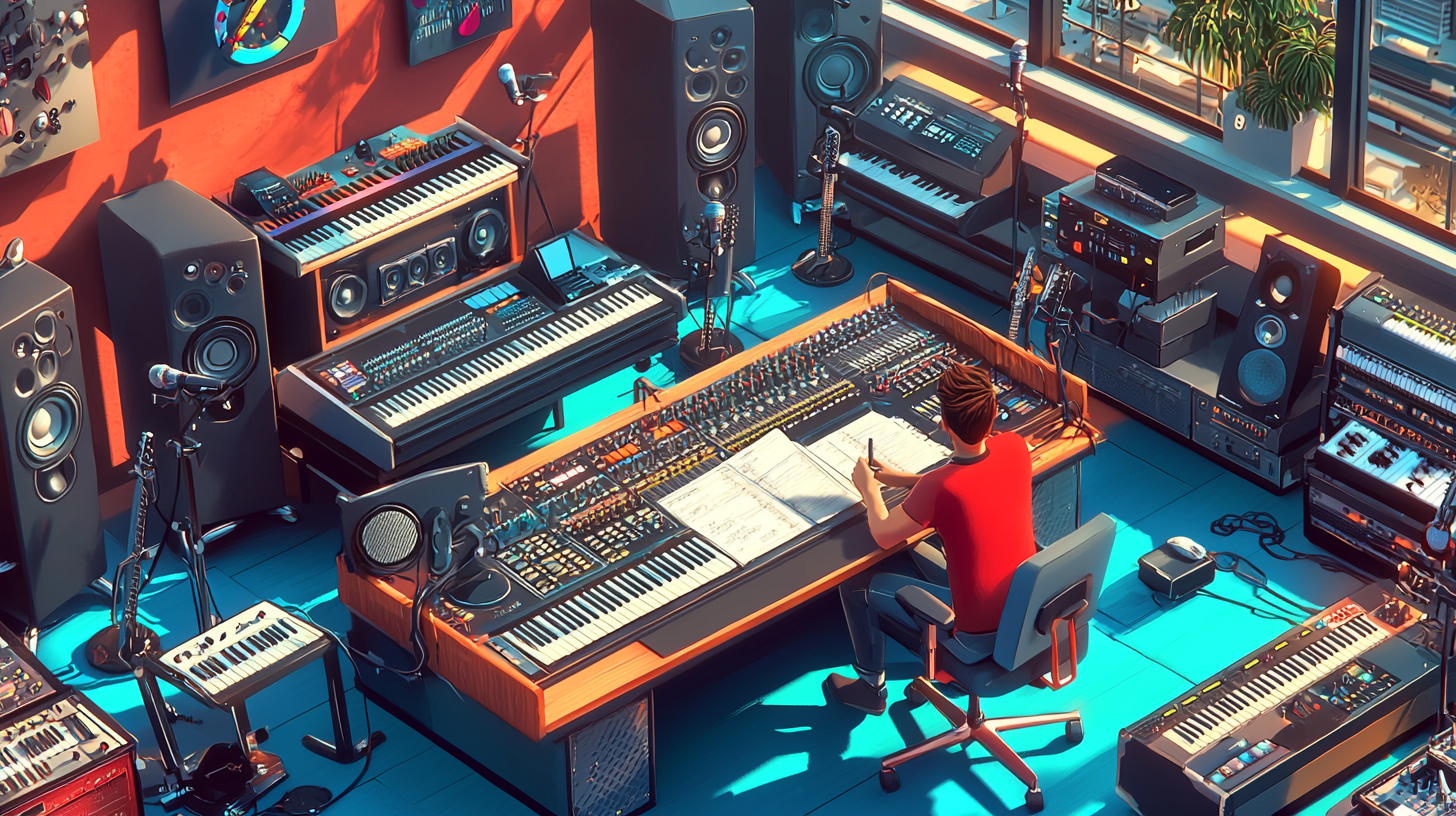Must-Have Tools for Music Production: A Comprehensive Guide
Whether you’re a seasoned producer or just getting started, having the right tools for music production is essential to creating high-quality tracks. The music production process involves several stages, from recording to mixing and mastering, and using the best tools will help streamline your workflow and enhance the final product.
In this guide, we’ll cover the must-have tools for music production in 2025, including software, hardware, and plugins that every producer should consider. These tools will help you produce professional-grade music in any genre, whether you’re working from a home studio or a professional setup.
- Digital Audio Workstation (DAW)
A Digital Audio Workstation (DAW) is the centerpiece of any music production setup. It allows you to record, edit, arrange, and mix your tracks. There are several great options depending on your preferences and budget.
Top DAWs for 2025:
- Ableton Live 11: Known for its intuitive interface, Ableton is perfect for producers who want to create electronic music, perform live, or experiment with loops.
- Logic Pro X: Available only on Mac, Logic Pro X offers a wide range of features, including advanced MIDI capabilities and great built-in plugins.
- FL Studio: A popular choice among beginners and professionals alike, FL Studio’s user-friendly interface makes it easy to produce tracks from scratch.
- Pro Tools: Used in many professional studios, Pro Tools is ideal for producers who need industry-standard recording, editing, and mixing capabilities.
Budget Tip: Many DAWs offer free trials or entry-level versions, such as Ableton Live Lite or GarageBand for Mac users.
- Audio Interface
An audio interface is crucial for recording instruments, vocals, and other external sounds into your DAW. It converts analog signals into digital audio for editing and mixing in your DAW.
Recommended Audio Interfaces:
- Focusrite Scarlett 2i2 (3rd Gen): A favorite among budget-conscious producers, the Scarlett 2i2 offers excellent sound quality and is great for recording vocals and instruments.
- Universal Audio Apollo Twin X: For a more high-end option, the Apollo Twin X offers superior sound quality, onboard DSP for real-time UAD plugin processing, and a sleek design.
- PreSonus AudioBox USB 96: A budget-friendly option that delivers good sound quality and is perfect for beginners who need basic recording capabilities.
Budget Tip: Look for audio interfaces with two inputs if you’re just starting. This will cover most recording needs without overwhelming you with unnecessary features.
- MIDI Controller
A MIDI controller is essential for composing melodies, programming beats, and manipulating virtual instruments. A good controller can streamline your workflow and make the music creation process more intuitive.
Top MIDI Controllers:
- Akai Professional MPK Mini MK3: Compact and affordable, the MPK Mini is a great tool for beatmakers and electronic music producers.
- Novation Launchkey 49 MK3: With integrated Ableton Live controls, this controller is perfect for producers using Ableton. It features pads, faders, and keys for versatile production.
- Arturia KeyLab Essential: Known for its excellent build quality, the KeyLab Essential comes with 49 or 61 keys and includes software bundles that can boost your production capabilities.
Budget Tip: Start with a small 25-key or 49-key MIDI controller if you’re limited on space and budget. Many affordable models still offer full integration with popular DAWs.
- Studio Monitors
Accurate sound reproduction is crucial when mixing and mastering tracks, and that’s where studio monitors come in. Unlike regular speakers, studio monitors provide a flat frequency response, ensuring you hear the most accurate representation of your mix.
Best Budget Studio Monitors:
- KRK Rokit 5 G4: Known for their iconic yellow cones, these monitors offer clear sound and are a favorite among budget-conscious producers.
- Yamaha HS5: With a reputation for accuracy, the HS5 monitors are perfect for mixing, providing a true representation of your sound.
- JBL 305P MkII: These monitors offer great clarity and value for their price, making them ideal for smaller studios.
Budget Tip: If you’re on a tight budget, start with a pair of high-quality headphones (such as Audio-Technica ATH-M50X) and add studio monitors as you grow.
- Headphones
In addition to studio monitors, a good pair of studio headphones is essential for detailed listening, especially when you’re working in a non-treated room or at late hours.
Top Studio Headphones:
- Audio-Technica ATH-M50X: Affordable, durable, and widely regarded for their flat response and clarity.
- Sony MDR-7506: Another industry-standard option, perfect for monitoring vocals and detailed mixing.
- Beyerdynamic DT 770 Pro: These closed-back headphones provide excellent sound isolation, making them ideal for recording and mixing.
- Microphones
If you plan to record vocals, acoustic instruments, or even sample sounds, a good microphone is essential. The type of microphone you choose will depend on your specific needs, but here are some solid options for budget-conscious producers.
Recommended Budget Microphones:
- Audio-Technica AT2020: A great entry-level condenser microphone that’s perfect for recording vocals and instruments.
- Shure SM58: A dynamic microphone known for its durability and versatility, ideal for vocals and live performances.
- Rode NT1-A: A highly regarded condenser mic that offers excellent clarity for vocals and acoustic recordings.
Budget Tip: Start with a versatile microphone like the AT2020, which works well for both vocals and instruments. You can always expand your mic collection later.
- Plugins and Virtual Instruments
In addition to hardware, plugins and virtual instruments are essential for music production. They allow you to add effects, mix tracks, and use instruments without needing the physical hardware.
Must-Have Plugins:
- FabFilter Pro-Q 3 (EQ) – A powerful EQ plugin used for shaping and cleaning up sounds in your mix.
- Waves SSL G-Master Buss Compressor (Compressor) – This plugin emulates the famous SSL bus compressor used on countless hit records.
- Valhalla VintageVerb (Reverb) – A high-quality, affordable reverb plugin that adds space and depth to your mixes.
- Serum by Xfer Records (Synthesizer) – One of the most popular virtual synths, perfect for creating a wide range of sounds, from basses to leads.
Budget Tip: Look for free or affordable plugins. Some DAWs come with a good selection of built-in effects and instruments, so maximize those before investing in more.
- External Hard Drive
As your music production library grows, so will your storage needs. A fast, reliable external hard drive is essential for backing up projects, storing samples, and organizing your sessions.
Recommended External Hard Drives:
- Samsung T7 Portable SSD: Offers fast read/write speeds and is highly portable, making it perfect for music production.
- WD My Passport: A more budget-friendly option, this external hard drive provides reliable storage and backup for your files.
Budget Tip: Start with at least 500GB or 1TB of storage, especially if you plan to work with large sample libraries.
- Acoustic Treatment
Improving your room’s acoustics is one of the most important factors in achieving a clean, professional mix. Acoustic treatment helps minimize reflections, reverb, and unwanted noise, giving you a more accurate listening environment.
Budget Acoustic Treatment Options:
- Foam Panels: Affordable and easy to install, foam panels help reduce mid- and high-frequency reflections.
- Bass Traps: For controlling low-end frequencies, bass traps are essential for producing clear mixes.
- DIY Solutions: Use rugs, curtains, and thick blankets to dampen reflections and absorb sound in untreated rooms.
Budget Tip: Start small with foam panels around your mixing area, and gradually add more treatment as your budget allows.
Conclusion: Essential Tools for Music Production Success
Setting up a music production studio requires the right combination of hardware, software, and accessories. Whether you’re just starting out or looking to upgrade your current setup, investing in a good DAW, audio interface, studio monitors, headphones, and plugins will give you the foundation you need to produce professional-quality music.
Platforms like Muibas can further enhance your production experience by allowing you to collaborate with other musicians, test different versions of your tracks, and get real-time feedback. With the right tools and resources, you’ll be well on your way to creating great music in no time!


